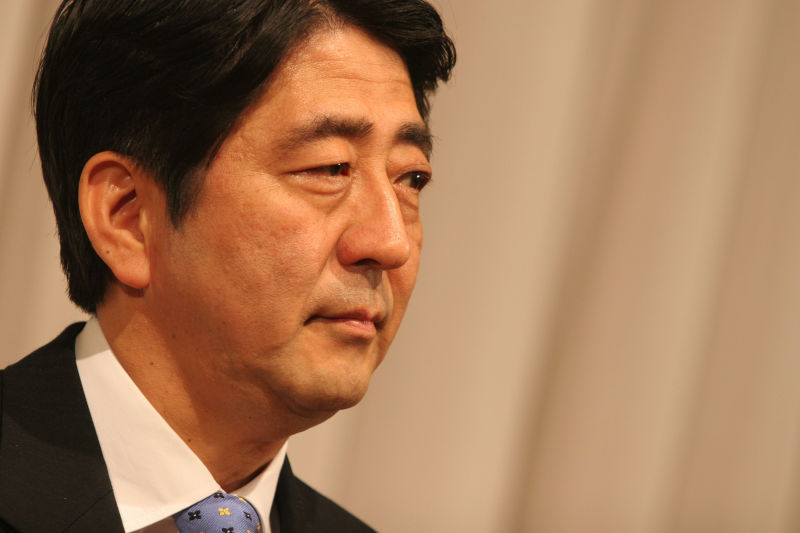PM attending controversial Abe State funeral a diplomatic mis-step
September 27, 2022
Mr Albanese is coming to Tokyo for the September 27 state funeral of former Japanese prime minister, Shinzo Abe. Does our PM know or care about Abe’s background? Two thirds of Japanese people oppose the state funeral.
Not everyone will welcome the attention. Mr Abe’s death was at the hands of a man, Tetsuya Yamagami, angry over the way his family was impoverished by a virulently anti-communist cult, the Unification Church, supported by Mr Abe’s ruling Liberal Democratic Party.
Almost half of the today’s LDP members have admitted to ties with the cult whose members provide crucial election support.
Cult members are recruited by typical indoctrination techniques which lead them to donating much of their savings to Cult causes. Mr Yamagami was angry over the way his mother had lost most of the family savings as a result. He decided to take out his anger on Mr Abe who also had ties to the cult.
One hopes Mr Albanese and the bevy of former Australian political leaders said to be coming to Mr Abe’s state burial realise these details. In the framework of Japan’s weak diplomacy Mr Abe’s strong personality and skilful manoeuvring may have won him admirers abroad. But at home his reputation was frequently mired in scandals, ugly even by LDP standards.
The latest still not resolved involved the falsification of government documents leading to a suicide of the responsible bureaucrat so that an ultra-rightist organisation favoured by Mr Abe’s wife could acquire land at ultra cheap prices.
But any damage he caused at home pales in comparison with the damage Mr Abe has caused abroad. He has used a contrived abduction affair to deadlock the 2002 Pyongyang Declaration with North Korea signed by his own prime minister at the time, Koizumi Junichiro.
Under this agreement Japan promised to normalise relations with Pyongyang and provide substantial economic aid in exchange for a North Korean moratorium on the testing of nuclear weapons missiles.
If carried out it would have opened North Korea to the outside world, releasing its suffering 25 million citizens from a life of poverty and state suppression. But it was killed by Mr Abe.
He managed to do this when as deputy cabinet secretary he accompanied Koizumi on his 2002 visit to North Korea to receive an apology and admission of guilt from North Korea’s then leader Kim Jong Il for having abducted some 13 Japanese citizens during a period of open hostility between the two countries.
Of the 13 people abducted 8 had died. Koizumi was promised the remaining five would be sent to Japan.
But even before gaining this promise Abe was claiming there could be as many as 800 (now officially reduced to 17) abductees trapped in North Korea and was busy establishing powerful groups in Japan demanding their return.
Becoming Japan’s prime minister he promoted the image of one Yokota Megumi, abducted by accident at age 13, and her grieving parents, as symbols of the abduction tragedy. Although Megumi was known to have suicided in 1994 after a forced marriage to another abductee, his government’s insistence she and other claimed abductees were still alive allowed the abduction affair to be dragged on till today.
North Korea’s attempt to prove she died by providing cremation bones was quickly dismissed by an Abe appointed tester, over protests by British experts.
The twentieth anniversary of the abortive Declaration was allowed to pass last week by a demoralised media with little more than regrets the alleged remaining abductees still had not been returned.
But the promise of a state funeral for Abe has inflamed his critics outside the media. Normally reserved for political leaders of great merit, this is only the second state funeral Japan has seen since the war. Its cost (including outlays for security) is approaching the astronomical.
Protest demonstrations already underway have included one immolation. Slightly more than half those polled in recent weeks say they are opposed.
Mr Albanese may feel he is showing respect for a great Japanese leader. In fact by appearing to endorse Mr Abe’s policies and misdeeds he will be acting contrary to the will of many Japanese.
Interfering in domestic affairs of another nation is one of the larger diplomatic mis-steps.
Like grandson: Like grandfather Shinzo Abe (1954-2022)..Grandson Abe resigned in 2020.


